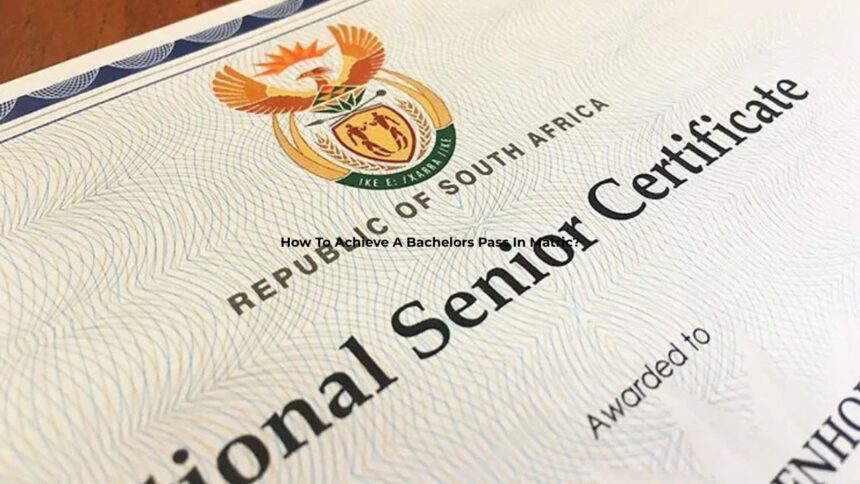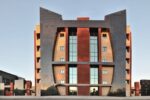How To Achieve A Bachelors Pass In Matric? In South Africa, matric results hold immense power. They determine your future educational journey, your ability to pursue a career, and in many cases, they serve as a gateway to a better life.
Among the different types of matric passes, the Bachelor’s Pass stands out as the most prestigious. If you’re asking how to achieve a Bachelors Pass in Matric, you’re already one step closer to opening doors to universities, technikons, and various exciting career paths.
Matric Pass Levels in South Africa
When you write your National Senior Certificate (NSC) exams at the end of Grade 12, you receive a pass level based on your performance. There are four primary pass types:
- Higher Certificate Pass
- Diploma Pass
- Bachelor’s Pass
- NSC Pass (Basic Pass)
Each of these passes grants you access to different post-matric opportunities. However, the Bachelor’s Pass is the most flexible and widely accepted by South African universities and higher education institutions.
What is a Bachelor’s Pass?
A Bachelor’s Pass allows you to study towards a degree qualification at a university, college, or technikon. It is the highest level of achievement within the NSC pass categories and is a critical requirement for most undergraduate programs.
What You Can Do With a Bachelor’s Pass:
- Enrol in a bachelor’s degree at a public or private university.
- Gain admission to university of technology for specialised diplomas.
- Pursue postgraduate studies in the future (provided other academic requirements are met).
- Access scholarships or bursaries, many of which require a Bachelor’s Pass as a minimum.
- Enter structured learnerships or internships requiring degree-level study eligibility.
Requirements to Achieve a Bachelor’s Pass
To obtain a Bachelor’s Pass, you must meet the following minimum academic requirements in your Grade 12 results:
| Subject Category | Minimum Required Percentage |
|---|---|
| Home Language | At least 40% |
| Four High-Credit Subjects (e.g. Mathematics, Business Studies, Life Sciences, Accounting, Geography, Visual Arts, etc.) | At least 50% in each |
| Two Other Subjects | At least 30% in each |
Additionally:
- You must pass a total of seven subjects, including Life Orientation and your home language.
- The four subjects with 50% or more must be designated subjects required for degree studies.
- You must write at least one official South African language at the Home Language level and another at First Additional Language level.
Designated Subjects That Count Towards a Bachelor’s Pass
To qualify for a Bachelor’s Pass, your four subjects above 50% must be from the Designated Subject List. These subjects include, but are not limited to:
- Accounting
- Business Studies
- Economics
- Geography
- History
- Life Sciences (Biology)
- Mathematics / Mathematical Literacy
- Physical Sciences
- Languages (English, Afrikaans, isiZulu, etc.)
- Information Technology
- Visual Arts
Choosing the right subject combination in Grade 10 is crucial, as it will affect your eligibility to qualify for a Bachelor’s Pass.
Difference Between Pass Types: Higher Certificate vs Diploma vs Bachelor’s
| Pass Type | Requirements | Qualification Access |
|---|---|---|
| Higher Certificate Pass | 40% in Home Language, 30% in two other subjects, and a total of six subjects | Access to Higher Certificate programmes at colleges and TVET institutions |
| Diploma Pass | 40% in Home Language, 40% in four other subjects, and 30% in two subjects | Access to Diploma programmes at universities of technology and TVET colleges |
| Bachelor’s Pass | 40% in Home Language, 50% in four designated subjects, 30% in two subjects | Access to Bachelor’s Degrees at public/private universities |
If you aim for a Bachelor’s Pass, you automatically qualify for the lower levels (Diploma and Higher Certificate), giving you more flexibility in case your initial plans change.
How To Achieve A Bachelors Pass In Matric – Practical Tips
If your goal is to secure a Bachelor’s Pass, here are some strategic tips and proven methods to guide your study efforts:
1. Master Your Home Language
Since 40% is required in your Home Language, don’t underestimate this subject. Mastering comprehension, essay writing, and language structure is essential.
2. Focus on High-Credit Subjects
You’ll need at least 50% in four designated subjects. Pay extra attention to these in your study timetable. If you’re struggling, consider extra lessons or peer study groups.
3. Time Management and Study Schedules
Matric is challenging. Create a structured study timetable, plan revision sessions, and avoid last-minute cramming.
4. Past Exam Papers
Practice using past matric exam papers. This helps you understand the exam format and improve your confidence.
5. Seek Academic Support
Don’t hesitate to ask for help from your teachers, tutors, or online platforms. Resources like Woza Matrics, Mindset Learn, and Department of Basic Education portals offer valuable content.
6. Prioritise Wellness
Matric stress is real. Ensure you balance studying with enough rest, exercise, and healthy eating. A healthy mind leads to better academic outcomes.
Why A Bachelor’s Pass Matters in South Africa
Achieving a Bachelor’s Pass in Matric means you’re not limited in your career or educational choices. You become eligible for:
- Entry into top South African universities such as UCT, Wits, TUT, UJ, and Stellenbosch.
- Applications for funding from NSFAS, Funza Lushaka, Department of Higher Education Bursaries, and private bursaries.
- Career fields that require degrees: law, medicine, education, commerce, IT, and engineering.
Most importantly, it sets the tone for lifelong learning and personal growth.
Conclusion
The journey to achieving a Bachelor’s Pass in Matric is not always easy, but with the right mindset, support, and preparation, it is definitely possible. Your matric certificate is more than just a piece of paper—it’s a passport to your future dreams.










